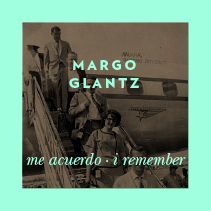Yuri Herrera: A day in the life
This is my New Year’s Eve: a blanket, coffee with sugar, zipping back and forth between a novel and a book that wants to be a novel but is just desperate philosophy, watching French television with no high hopes. Outside it’s pretty much what they call here “good weather”: eight degrees Celsius. Outside is what no one needs to say, but which the architecture itself declares: the first world, on its way. A cluster of buildings that all look the same, with lobbies, elevators, parking garages, lots of human things, except people. Most of them are residential buildings, and the places already rented are all empty for the holidays. Across from the apartment where I’m staying, a couple gives some signs of life: they cook, watch TV, go out to smoke. A few times we’ve seen each other on the balconies but then either they or I looked away. Today a third person arrived, an old lady, maybe one of their mothers, who too steps out to smoke.
Sometimes someone walks down the street. I can hear them at a half-block’s distance, and if my coat’s within reach I go out on the balcony to watch them until they disappear around the corner. I wonder if they’re going to fuck someone or if they’re going out to eat with someone or what they’re doing here. Walking down this street is a little scary. Not because it seems like a murderer’s lurking in the shadows ready to pounce. But because there’s nothing. A well-behaved scariness, with a twisted, pink-lipped smile. On the ground floor, in some uncertain future, there’ll be bakeries and kebab shops, laundromats, bars, storefronts. Now there’s nothing but empty shop windows. And outside, looking into the shop windows, heaps of debris from all the construction, as if asking not to be left to the elements.
I went downtown, where there’s as much fine food and as many beautiful and elegant and distant girls; and the traboules they built a century and a half ago, that go down the city towards the river, and through which the workers escaped during the revolution of ’48 because the police didn’t understand those tunnels and didn’t dare enter them. But it’s cold, tomorrow’s my birthday, and here I am without any family or tequila at hand, nor mole to relish; and I come back from downtown and I curl up in this Lyonnais apartment I’ve been borrowing where the heat is soothing and soft, and which I’ve taken over by leaving my clothes all over the place and dirty glasses in the sink, because nothing says This is mine like one’s own sloppiness.
In a few days I’ll go back to teaching the classes they asked me to and conversing with French people. In the meantime, I imagine that the couple and the mother across the street are speaking Spanish; and in the other apartments I imagine the French they aren’t speaking, that I hardly understand anyway, but that in those empty rooms I hear with a dazzling clarity.
See also:
[Alejandra Costamagna] [Oliverio Coelho]








